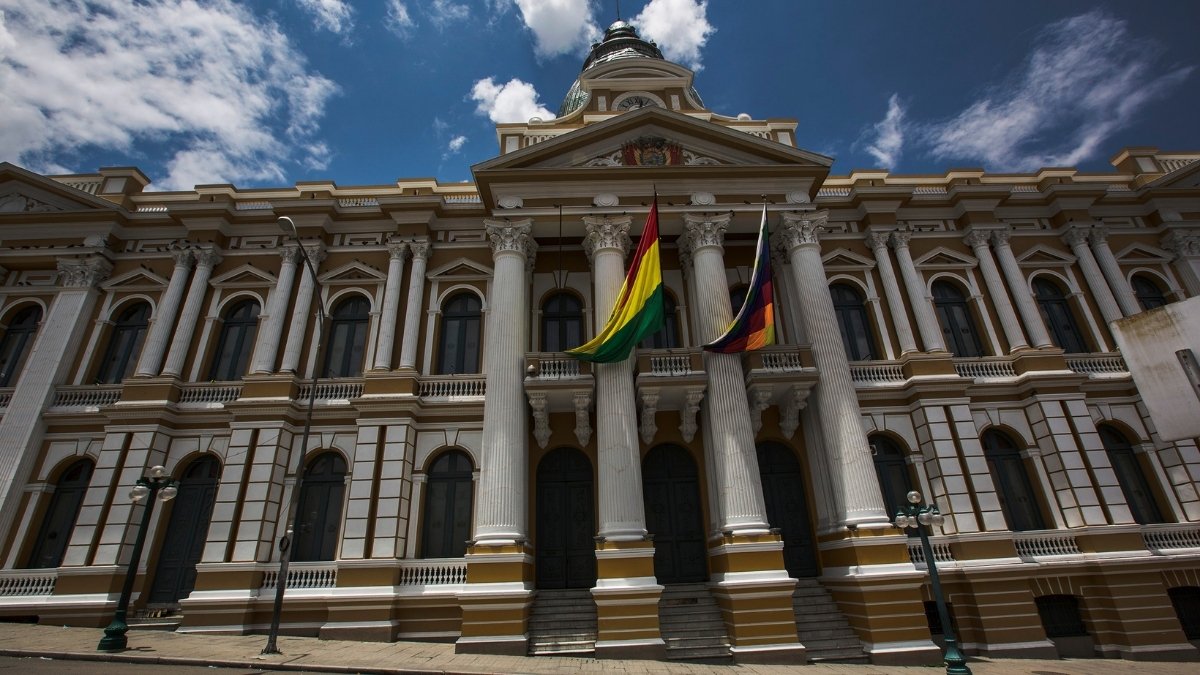Do You Know What the Capital of Bolivia Is? This South American nation is known for its Andean peaks and vibrant indigenous culture. It has a political setup that surprises many quiz lovers and travellers with Spanish colonial cities, dramatic geography such as the world’s highest navigable lake, Titicaca, to the vast Uyuni Salt Flats.
You must be wondering what could be the capital city of Bolivia. If you think Bolivia’s capital is La Paz, you are on the right path, but there is a twist to it. Bolivia’s story of governance and identity runs deeper than a single city. Let us explore the history of the Capital of Bolivia, through this blog.
What Is the Capital of Bolivia?
Bolivia’s situation is unique and quite different from other nations, as it has two capitals:
-
Sucre: the constitutional capital of Bolivia, officially declared in the nation’s constitution.

(Credits: G Adventures)
- La Paz: the administrative capital where the President, Parliament, and most government offices operate.
In short, Sucre holds Bolivia’s legal title as the capital, while La Paz functions as its seat of government.
Why Does Bolivia Have Two Capitals?
The story behind Bolivia having two capitals dates back to the Federal Revolution of 1898–99. It was when power shifted from Sucre to La Paz. To end political tension, a compromise was made, and Sucre remained the constitutional capital, while La Paz became the executive and legislative hub.
| Capital | Status | Known For | Altitude (m) |
| Sucre | Constitutional Capital | Judiciary & Historic Heritage | ≈ 2,790 m |
| La Paz | Administrative Capital | Government, Politics, Trade | ≈ 3,650 m |
What Is Bolivia Famous For?
Bolivia is celebrated for its:
-
Salar de Uyuni, the world’s largest salt flat
-
The Andes Mountains and Lake Titicaca
-
Rich Quechua and Aymara cultures
-
Colourful festivals such as Carnaval de Oruro
It’s one of South America’s most diverse nations, culturally, geographically, and politically.
What Is Sucre Famous For?

(Credits: Audley Travel)
It is often called the “White City” as it boasts stunning colonial architecture and a calm, historic charm. It’s home to the Supreme Court of Bolivia, several museums, and ancient universities. Recognised as a UNESCO World Heritage Site, Sucre symbolises Bolivia’s independence and legal authority.
Capital of Bolivia: Trivia Facts
|
You May Also Like to Read:
List of 9 Most Famous Mathematicians in History, Check Here!
List of 9 Most Influential Dynasties in World History, Check Here!
Conclusion
Therefore, Bolivia breaks the one-city-one-capital rule. Sucre serves as its official constitutional capital, preserving history and law, while La Paz drives the nation’s politics and economy from the clouds. This rare dual-capital system perfectly reflects Bolivia itself. Moreover, it also represents a blend of heritage and modern governance at the heart of South America.
To see more of such stories, you can go ahead and add this site to your preferred sources by clicking here.
Comments
All Comments (0)
Join the conversation